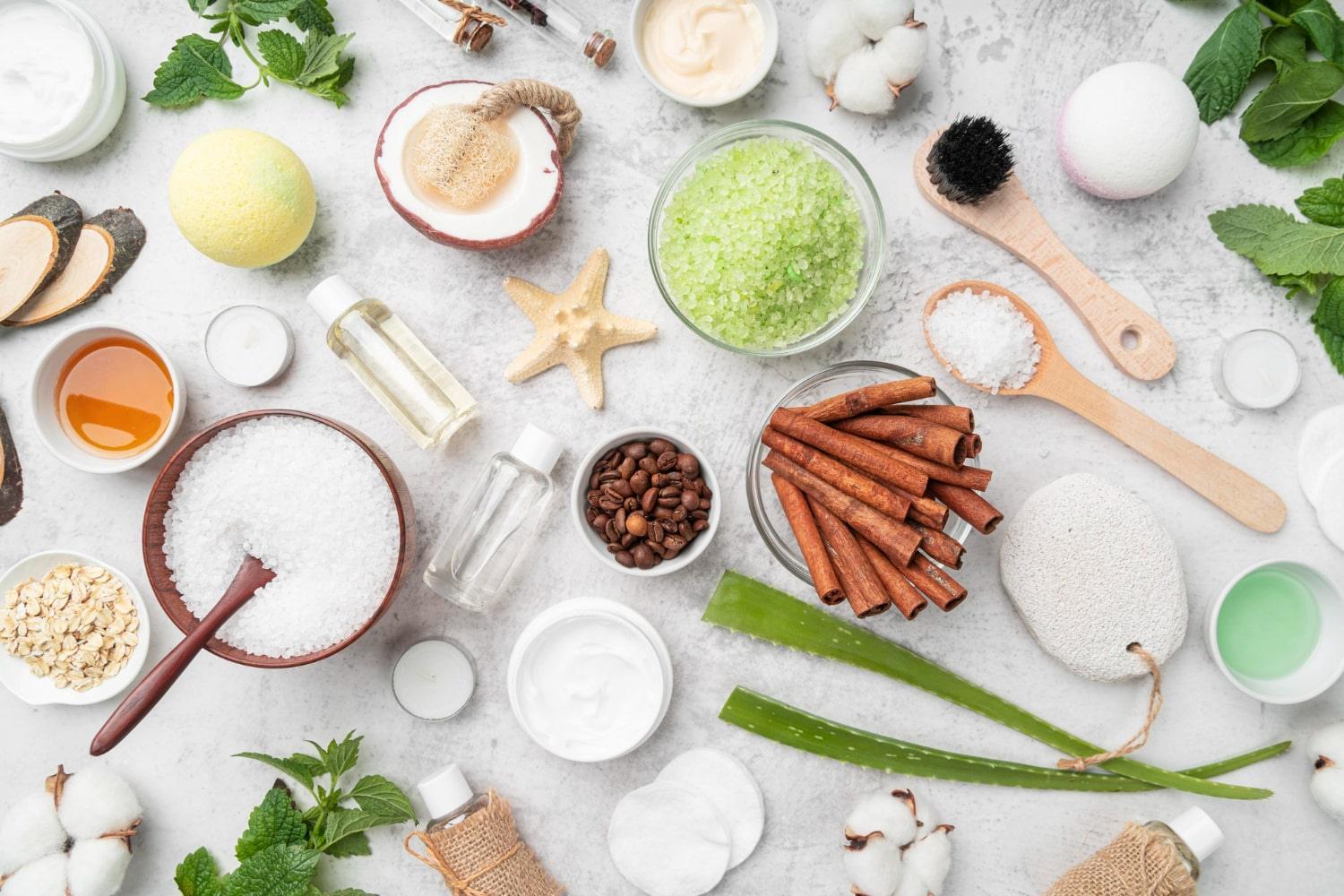Feeling bloated? It’s one of those pesky issues that can leave you feeling heavy, sluggish, and downright uncomfortable. But don’t worry. You can take charge of how you feel with the right foods! In this article, we’re diving deep into 7 anti-bloating foods that can help you feel light and energized. Let’s face it: life is too short to be weighed down by discomfort.
Contents
- Understanding Bloating
- 1. Bananas: The Potassium Powerhouse
- 2. Ginger: The Soothing Spice
- 3. Cucumbers: The Refreshing Hydrator
- 4. Yogurt: The Probiotic Power
- 5. Pineapple: The Digestive Enzyme
- 6. Peppermint: The Calming Herb
- 7. Fennel: The Bloating Buster
- Incorporating These Foods into Your Diet
- When to Seek Professional Help
Understanding Bloating
Bloating occurs when your stomach fills with air or gas, leading to that annoying tight feeling. It can be caused by a variety of factors, including diet, stress, and even certain medical conditions. Understanding what causes bloating is essential, but knowing how to combat it through your diet can be a game changer. When you incorporate the right foods, you not only reduce bloating but also nourish your body, boosting your overall energy levels.
Why Anti-Bloating Foods Matter
Imagine waking up feeling refreshed, with a light belly and boundless energy. It’s possible! By choosing anti-bloating foods, you support your digestive system, enhance nutrient absorption, and maintain a healthy gut flora. These foods help you reclaim your comfort and vitality, allowing you to focus on what truly matters in your life.
Let’s explore the 7 anti-bloating foods that can turn your day around.
1. Bananas: The Potassium Powerhouse
Bananas are not just a convenient snack; they’re also a fantastic ally in the fight against bloating. Rich in potassium, they help regulate sodium levels in the body, which can reduce water retention.
Benefits:
- Alleviates discomfort caused by excess gas.
- Supports heart health.
- Provides quick energy.
Snack on a banana post-workout or toss one into your morning smoothie. Your body will thank you!
2. Ginger: The Soothing Spice
Ginger has been cherished for centuries for its medicinal properties, and it’s no surprise. This spicy root helps to soothe the digestive tract and reduce inflammation.
Benefits:
- Combats nausea and bloating.
- Promotes healthy digestion.
- Acts as a natural anti-inflammatory.
Brew some ginger tea or add fresh ginger to your stir-fries. It’s a simple way to boost your digestion and calm your stomach.
3. Cucumbers: The Refreshing Hydrator
Cucumbers are made up of about 95% water, making them an excellent food for hydration. They’re low in calories and high in fiber, which aids digestion.
Benefits:
- Reduces water retention.
- Supports skin health.
- Keeps you hydrated.
Slice them up for a refreshing salad or snack. Sprinkle a little salt and lemon juice for added flavor!
4. Yogurt: The Probiotic Power
Not all yogurts are created equal, but those packed with live cultures can be a fantastic addition to your diet. Probiotics help balance your gut bacteria, improving digestion and reducing bloating.
Benefits:
- Supports gut health.
- Enhances nutrient absorption.
- Boosts your immune system.
Choose plain, unsweetened yogurt and top it with fruits or nuts for a delightful breakfast or snack.
5. Pineapple: The Digestive Enzyme
This tropical fruit is not only delicious but also contains bromelain, an enzyme that helps break down proteins and aids digestion.
Benefits:
- Reduces bloating and inflammation.
- Supports healthy digestion.
- Provides a burst of vitamin C.
Enjoy pineapple fresh, in smoothies, or grilled for a unique twist on dessert.
6. Peppermint: The Calming Herb
Peppermint is more than just a refreshing flavor; it’s a powerful digestive aid. It relaxes the muscles in your gastrointestinal tract, which can alleviate bloating.
Benefits:
- Soothes digestive discomfort.
- Helps relieve gas.
- Promotes overall gut health.
Sip on peppermint tea or incorporate fresh leaves into salads and desserts for a refreshing touch.
7. Fennel: The Bloating Buster
Fennel seeds are often used in cooking, but they’re also a natural remedy for digestive issues. They contain compounds that can help relax the muscles in the gastrointestinal system.
Benefits:
- Reduces bloating and gas.
- Supports digestion.
- Has anti-inflammatory properties.
Chew on fennel seeds after meals or brew them in tea for a soothing digestive aid.
Incorporating These Foods into Your Diet
So, how can you make these anti-bloating foods a part of your daily routine? Here are some practical tips:
- Smoothie Power: Blend bananas, yogurt, and pineapple for a delicious, gut-friendly smoothie.
- Salad Sensation: Add sliced cucumbers and fennel to your salads for a refreshing crunch.
- Snack Time: Keep bananas and cucumbers handy for healthy snacking.
- Tea Time: Brew ginger or peppermint tea in the afternoon to ease any bloating that might arise.
Listen to Your Body
Everyone’s body is different. What works for one person may not work for another. Pay attention to how these foods make you feel and adjust accordingly. You deserve to feel your best!
When to Seek Professional Help
While incorporating these anti-bloating foods can significantly improve your comfort, persistent bloating may indicate an underlying issue. If you experience chronic bloating, abdominal pain, or other concerning symptoms, it’s wise to consult a healthcare professional. They can offer guidance tailored to your specific situation.
Bottom Line
Feeling light and energized is within your reach. By embracing these 7 anti-bloating foods, you can take control of your comfort and overall well-being. Say goodbye to that heavy feeling, and hello to a life full of energy and vitality.
Don’t forget: you have the power to nourish your body and choose foods that make you feel good. Start today, and let your journey to feeling light and vibrant begin!
FAQ
Q: Can drinking water help reduce bloating?
A: Absolutely! Staying hydrated helps flush out excess sodium and reduces water retention.
Q: Are there any foods that can make bloating worse?
A: Yes, foods high in salt, carbonated drinks, and certain legumes can contribute to bloating.
Q: How long does it take to see results from dietary changes?
A: Many people notice improvements within a few days to weeks after making dietary adjustments.
Now, go ahead and make these delicious changes. Your body is waiting!
Get Your FREE Natural Health Guide!
Subscribe now and receive our exclusive ebook packed with natural health tips, practical wellness advice, and easy lifestyle changes, delivered straight to your inbox.





